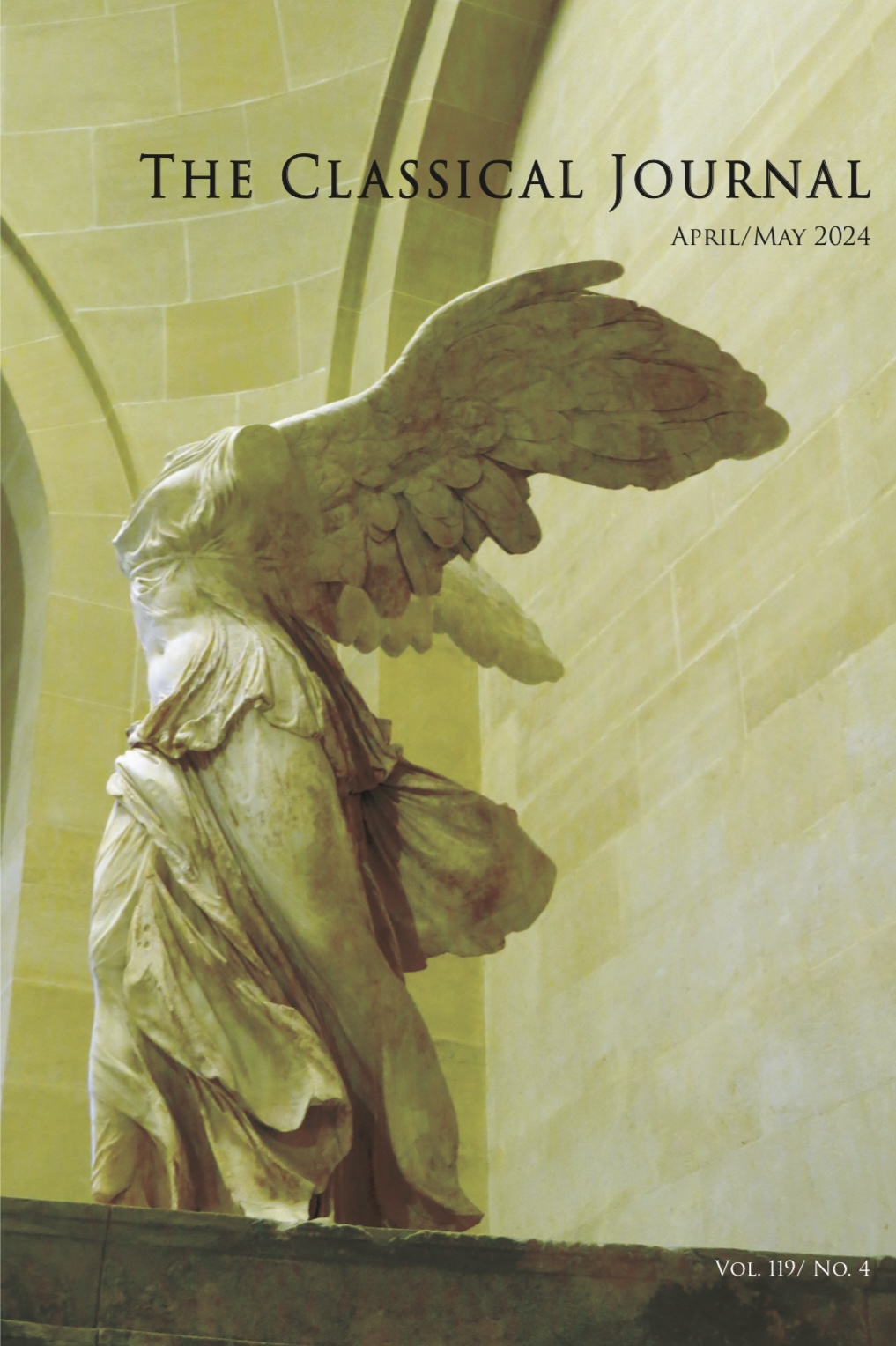The following articles are contained in CJ
119.3
Abstracts of Articles
The Decree Culture of Greek Sanctuaries (Delos, Delphi, The Amphiareion at Oropos and Elsewhere): The Epigraphic Dimension
In this article, I explore the so-called “decree cultures” of selected Greek sanctuaries by studying the chronological distribution of inscribed public decrees at Delos, Delphi and the Amphiareion at Oropos. The employment of quantitative methods will allow for the careful analysis of the chronological distribution of decrees displayed within the sacred space and to compare them to public documents erected in civic spaces. Interesting questions to consider are whether local decree habits were consistent with or departed from broader practices in Greek sanctuaries, and what kind of forces and intentions lay behind the setting up of decrees in sanctuaries in the first place.
The Fluidity of Gender Roles in Catullus: A New Interpretation of Poem 11
In this paper I argue that Catullus 11 anticipates the shift from the first section of the collection (1-14), mainly revolving around the poet’s passive love for Lesbia, to the second section (14b–26), mostly focused on his active love for Juventius. My reading has three interpretive advantages: first, it confirms the authorial arrangement of the first two segments of Catullus’ collection; second, it defends the thematic unity of poem 11 by providing a coherent analysis of the connections between stanzas 1–4 and 5–6; third, it explains the different tone used by Catullus to address Furius and Aurelius in different poems.
A Learned Dog: Roman Elegy and the Epitaph for Margarita
The epitaph for Margarita (CIL 6.29896) consists of six elegiac couplets in Latin engraved on a small marble plaque in commemoration of a domestic dog. It was discovered in Rome and likely made in the second century CE. In this paper I examine its allusions to Augustan elegy and verse epitaphs for humans, arguing that it humorously applies eroticizing and literary language to a dog. I then consider Margarita’s status as an import from Gaul, arguing that the epitaph fits into a broader tendency of Augustan elegy to use foreign luxuries to eroticize and naturalize Roman imperialism.


